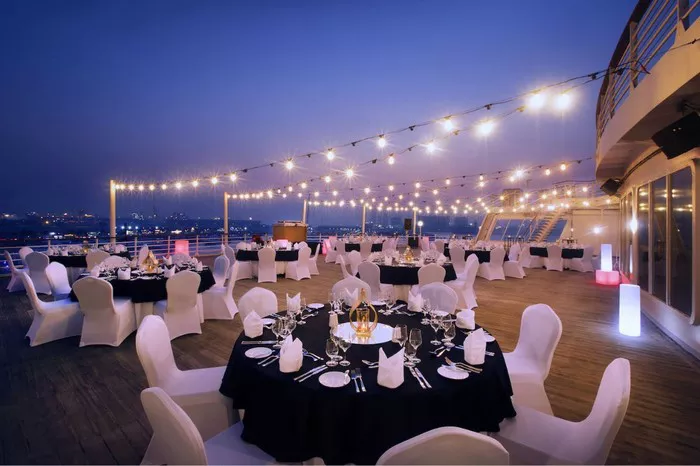Planning a wedding involves juggling numerous details, from the guest list to catering, attire, and entertainment. Among these factors, the venue plays a crucial role—not only setting the tone and atmosphere but often accounting for one of the largest portions of the overall budget. For couples navigating the complex world of wedding planning, a common and important question arises: How much of the total wedding budget should be dedicated to the venue?
Why the Venue Budget Matters So Much
The venue is much more than just a physical location. It creates the backdrop for your ceremony and reception, influences your event’s style, and can simplify or complicate the entire planning process. Because of its importance, the venue tends to take up a significant share of your budget.
Venue costs often include the rental fee, security, insurance, taxes, and sometimes additional charges for tables, chairs, and linens. Some venues offer full packages that include catering and other services, which can affect how the budget is distributed.
Understanding how much to allocate to the venue is essential for financial planning and helps prevent overspending in one area at the expense of others.
Industry Standards: The Venue Budget Percentage
Traditionally, wedding planning experts recommend allocating between 40% to 50% of your total wedding budget to the venue and related expenses. This range is a general guideline and can vary depending on location, time of year, and your wedding style.
Breakdown:
40%-50% for Venue: This includes the rental fee, tables and chairs, lighting, and sometimes catering if the venue offers in-house options.
Remaining 50%-60%: This covers food and beverage, photography, entertainment, attire, decorations, invitations, and miscellaneous costs.
For example, if you have a $30,000 wedding budget, allocating $12,000 to $15,000 for the venue is reasonable, leaving $15,000 to $18,000 for other essentials.
Factors That Influence Venue Costs
Several factors can impact how much of your budget the venue will consume:
1. Location
Venues in metropolitan or highly desirable areas tend to be more expensive. Urban settings often charge premium rates due to demand and accessibility, whereas rural or less popular locations may offer more affordable options.
2. Venue Type
From luxury ballrooms and historic estates to rustic barns and beachfront properties, the type of venue greatly influences cost. Exclusive or iconic venues with high demand naturally come at a higher price point.
3. Guest Count
Larger guest lists require bigger venues and more facilities, increasing rental fees. Some venues charge per person, while others have a flat rental fee regardless of headcount.
4. Season and Day of the Week
Peak wedding seasons (spring and summer) and weekends often see higher venue prices compared to off-season or weekday events.
5. Inclusions and Packages
Some venues provide all-inclusive packages including catering, décor, and coordination services, which can affect the upfront cost but potentially save money overall.
How to Decide the Right Venue Budget for You
While the 40%-50% guideline is helpful, your individual priorities and circumstances will determine the ideal allocation. Here are some steps to help you decide:
1. Prioritize Your Vision
Consider how important the venue ambiance is to your overall wedding vision. If the location is your dream setting, it may justify a higher percentage of your budget.
2. Assess Your Total Budget
The absolute cost will depend on your total wedding budget. For a smaller wedding, the venue might naturally take up a higher percentage due to fixed costs.
3. Balance Other Key Elements
Evaluate what other aspects of your wedding are priorities. If you want top-tier catering or entertainment, you might allocate less to the venue.
4. Get Multiple Quotes
Request quotes from various venues to understand the market rate in your area. This will help you set a realistic budget and identify any hidden costs.
Additional Venue-Related Expenses to Consider
Often, couples underestimate the total cost related to the venue. Here are some additional expenses to budget for:
Deposit and Cancellation Fees
Most venues require a deposit to hold your date. Understand cancellation policies and refund terms in case plans change.
Setup and Cleanup Fees
Some venues charge extra for setup, breakdown, and cleaning services.
Rentals
If your venue does not provide essentials such as tables, chairs, linens, or AV equipment, these will add to your costs.
Insurance
Certain venues require event insurance, which may be an additional cost.
Tips for Saving Money on Your Venue
If your ideal venue exceeds your budget, consider the following cost-saving strategies:
1. Opt for Off-Peak Times
Booking a venue during the off-season or on a weekday can drastically reduce costs.
2. Consider Alternative Venues
Parks, community halls, or smaller boutique venues might offer a charming atmosphere at a lower price.
3. Limit Guest Count
Reducing the number of guests allows for smaller venues, which are generally more affordable.
4. Negotiate
Don’t hesitate to negotiate with venue managers. Sometimes packages can be customized or discounts offered for certain dates.
5. DIY Decor
Minimizing venue decor or handling it yourself can reduce expenses if the venue is already aesthetically pleasing.
Conclusion
Determining how much of your wedding budget to allocate to the venue is a balancing act. While it’s typically wise to spend between 40% and 50% on the venue and its related costs, your unique preferences, budget size, and wedding style ultimately guide your decisions.
By understanding what influences venue costs and planning accordingly, you can secure the perfect location that complements your celebration without compromising other important wedding elements. Remember, a thoughtfully chosen venue will not only fit your budget but also create the unforgettable backdrop for one of the most significant days of your life.

